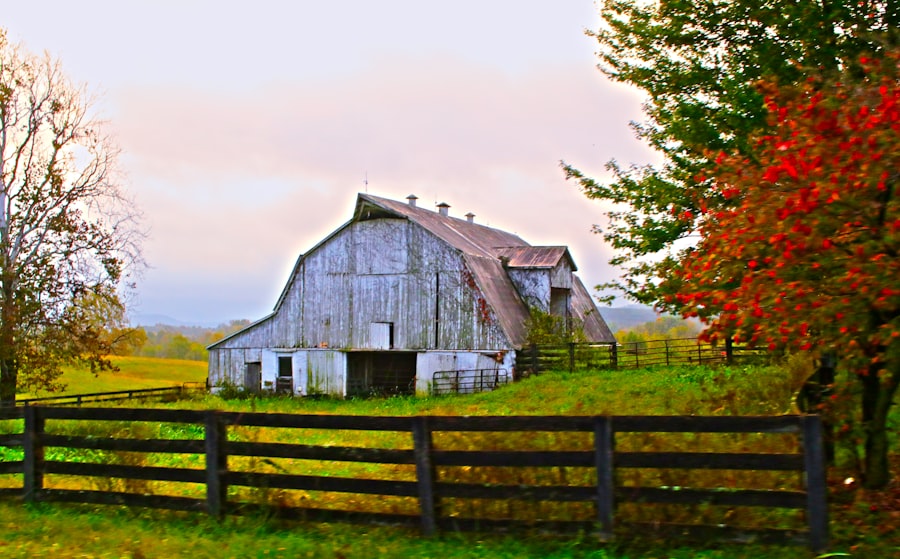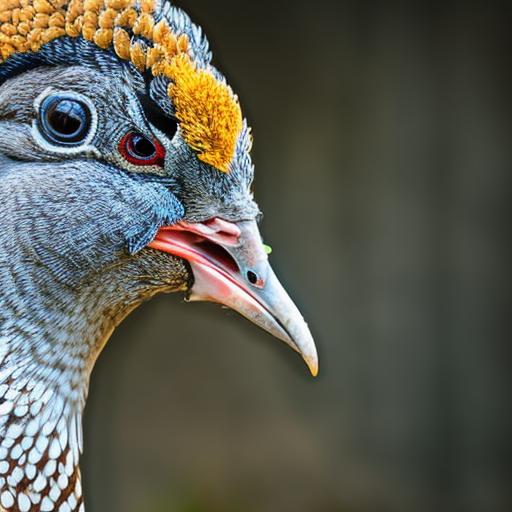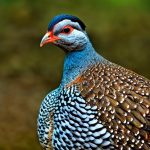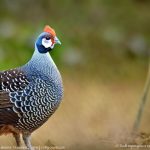Guinea fowl are renowned for their natural pest control abilities, making them a valuable asset to any farm or homestead. These birds have a voracious appetite for insects, including ticks, grasshoppers, and even small rodents. Their keen eyesight and quick reflexes make them excellent hunters, and they can often be seen foraging for food in the grass and underbrush. This natural pest control ability not only helps to keep insect populations in check, but it also reduces the need for chemical pesticides, making them an environmentally friendly option for pest control.
In addition to their insect-eating prowess, guinea fowl are also known for their ability to alert their owners to potential threats. These birds are highly vocal and will sound the alarm at the first sign of danger, whether it be a predator lurking nearby or an unfamiliar person approaching the property. This makes them an excellent early warning system, helping to protect other livestock and property from harm. Overall, the natural pest control abilities of guinea fowl make them a valuable and effective addition to any agricultural operation.
Key Takeaways
- Guinea fowl are natural pest controllers, helping to keep insect populations in check
- Their unique and beautiful appearance makes them a popular choice for ornamental purposes
- Guinea fowl are low maintenance and hardy birds, making them a great option for beginner poultry keepers
- The eggs and meat of guinea fowl are highly nutritious and sought after for their rich flavor
- Guinea fowl are social and entertaining birds, adding a lively dynamic to any environment
The Unique and Beautiful Appearance of Guinea Fowl
Guinea fowl are known for their unique and beautiful appearance, which sets them apart from other domesticated poultry. Their feathers are adorned with striking patterns of spots and stripes in shades of black, white, and gray, giving them a distinctive and eye-catching look. Their bare heads and necks are a vibrant blue or red color, adding to their overall visual appeal. Additionally, guinea fowl have a small, helmet-like crest on top of their heads, further adding to their unique appearance.
Another striking feature of guinea fowl is their distinctive call, which is often described as a series of loud, raucous honks and squawks. This vocalization is not only unique but also adds to the overall charm of these birds. Their quirky appearance and vocalizations make guinea fowl a delightful addition to any farm or homestead, adding a touch of character and personality to the landscape.
The Low Maintenance and Hardiness of Guinea Fowl
Guinea fowl are known for their low maintenance and hardiness, making them an ideal choice for those looking to raise poultry with minimal effort. These birds are highly adaptable and can thrive in a variety of climates and environments, from hot and humid to cold and dry. They are also resistant to many common poultry diseases, making them a hardy and resilient option for small-scale poultry production.
In addition to their hardiness, guinea fowl are relatively low maintenance compared to other poultry species. They are excellent foragers and can find much of their own food by ranging freely on pasture or in the yard. They also require minimal shelter, as they are able to roost in trees or on high perches to avoid predators. Overall, the low maintenance and hardiness of guinea fowl make them an attractive option for those looking to raise poultry with minimal inputs.
The Benefits of Guinea Fowl Eggs and Meat
Guinea fowl eggs and meat offer a range of benefits that make them a valuable addition to the homestead kitchen. Guinea fowl eggs are similar in flavor and nutritional content to chicken eggs but are slightly richer in taste and have a higher yolk-to-white ratio. They are also prized for their thick shells, which make them less prone to breakage during handling and transportation. Additionally, guinea fowl eggs have a longer shelf life than chicken eggs, making them a practical choice for those looking to store eggs for an extended period.
Guinea fowl meat is also highly prized for its rich flavor and lean texture. It is often compared to pheasant or wild game in taste, with a slightly gamey flavor that sets it apart from other poultry meats. Guinea fowl meat is also lower in fat and higher in protein than chicken or turkey, making it a healthy and nutritious option for those looking to add variety to their diet. Overall, the benefits of guinea fowl eggs and meat make them a valuable addition to the homestead kitchen.
The Social and Entertaining Nature of Guinea Fowl
Guinea fowl are known for their social and entertaining nature, making them a delightful addition to any farm or homestead. These birds are highly gregarious and enjoy the company of their flock mates, often forming close-knit bonds with one another. They are also highly curious and will often investigate new objects or changes in their environment with great enthusiasm. This social and inquisitive nature makes guinea fowl a joy to watch and interact with, adding a touch of liveliness to the farmyard.
In addition to their social nature, guinea fowl are also known for their entertaining behaviors, such as dust bathing, sunbathing, and engaging in playful pursuits. They are also highly vocal and will often engage in lively conversations with one another, adding to the overall ambiance of the farm or homestead. Overall, the social and entertaining nature of guinea fowl makes them a charming and endearing addition to any agricultural operation.
The Ability of Guinea Fowl to Thrive in Various Environments

Guinea fowl are highly adaptable birds that can thrive in a variety of environments, from rural farms to suburban homesteads. They are well-suited to free-range systems, where they can range freely on pasture or in the yard while foraging for food. They are also able to tolerate a wide range of temperatures, from hot and humid to cold and dry, making them an ideal choice for those living in diverse climates.
In addition to their adaptability, guinea fowl are also effective at controlling pests in various environments. Whether it be on a small-scale farm or in a suburban backyard, these birds can help keep insect populations in check without the need for chemical pesticides. This makes them an environmentally friendly option for pest control in a variety of settings. Overall, the ability of guinea fowl to thrive in various environments makes them a versatile and practical choice for those looking to raise poultry.
The Historical and Cultural Significance of Guinea Fowl
Guinea fowl have a long history of cultural significance in many parts of the world, dating back thousands of years. These birds are native to Africa and were first domesticated by ancient civilizations for their meat, eggs, and pest control abilities. They were highly prized by the Egyptians, Greeks, and Romans for their culinary value and were often depicted in art and literature as symbols of fertility and abundance.
In addition to their historical significance, guinea fowl have also played a role in various cultural traditions and rituals around the world. In some African cultures, guinea fowl feathers are used in traditional dress and ceremonial regalia, symbolizing wealth and status. In other cultures, guinea fowl are considered sacred animals and are used in religious ceremonies and offerings. Overall, the historical and cultural significance of guinea fowl adds to their allure as a valuable and meaningful addition to the farm or homestead.
In conclusion, guinea fowl are remarkable birds with a wide range of attributes that make them an attractive choice for those looking to raise poultry. From their natural pest control abilities to their unique appearance and entertaining nature, these birds offer a host of benefits that make them a valuable addition to any agricultural operation. Whether it be for their eggs, meat, or simply their charm and personality, guinea fowl have much to offer those who choose to welcome them into their lives.
If you’re considering adding guinea fowl to your poultry flock, you may be wondering why people choose to keep these unique birds. According to a recent article on PoultryWizard.com, guinea fowl are valued for their pest control abilities and their alert nature, which can help protect other poultry from predators. The article also discusses the benefits of integrating guinea fowl into a farmhouse chicken coop, offering valuable insights for those interested in diversifying their flock. To learn more about creating a suitable environment for guinea fowl and other poultry, check out the article on PoultryWizard.com.
FAQs
What are the reasons why people keep guinea fowl?
Guinea fowl are kept for various reasons, including their ability to control pests such as ticks, insects, and snakes, their delicious meat, their unique and attractive appearance, and their ability to serve as effective alarm systems due to their loud calls when sensing danger.
Do guinea fowl make good pets?
Guinea fowl can make good pets for some people, as they are relatively low-maintenance, have interesting personalities, and can be trained to some extent. However, they are not as affectionate or easily handled as some other poultry species, and they can be quite noisy.
Are guinea fowl good for pest control?
Yes, guinea fowl are excellent for pest control. They are known for their voracious appetite for ticks, insects, and even small snakes, making them valuable for keeping pest populations in check in gardens, farms, and other outdoor spaces.
What are the challenges of keeping guinea fowl?
Some challenges of keeping guinea fowl include their loud and frequent calls, their tendency to roam and explore, their susceptibility to predators, and their somewhat skittish nature. Additionally, they may not be as easily handled or as friendly as other poultry species.
Can guinea fowl be raised for meat?
Yes, guinea fowl are often raised for their meat, which is considered to be lean, flavorful, and nutritious. They are a popular choice for those seeking an alternative to chicken or turkey meat, and they are often used in gourmet cooking.
Meet Walter, the feathered-friend fanatic of Florida! Nestled in the sunshine state, Walter struts through life with his feathered companions, clucking his way to happiness. With a coop that’s fancier than a five-star hotel, he’s the Don Juan of the chicken world. When he’s not teaching his hens to do the cha-cha, you’ll find him in a heated debate with his prized rooster, Sir Clucks-a-Lot. Walter’s poultry passion is no yolk; he’s the sunny-side-up guy you never knew you needed in your flock of friends!







